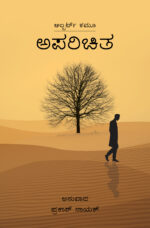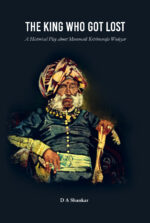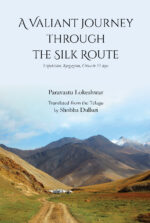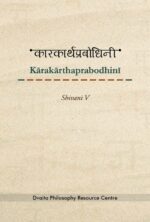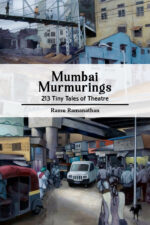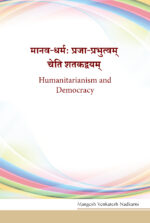Phedra
₹180.00
Translator: Madhava Chippalli
ರಾಸೀನ್ನ ಫೀದ್ರಾ ನಾಟಕವು ಪಾಶ್ಚಿಮಾತ್ಯ ನಾಟಕ ಸಾಹಿತ್ಯದಲ್ಲೇ ಒಂದು ಆಯಕಟ್ಟಿನ ಕೃತಿ. ಗ್ರೀಕ್ ಮತ್ತು ಎಲಿಜಬೆಥನ್ ನಾಟಕಗಳಲ್ಲಿ ಕಾಣಸಿಗದ ಹೊಸ ಬಗೆಯ ಮನೋಲೋಕವೊಂದನ್ನು ತನ್ನ ಪಾತ್ರಗಳಿಗೆ ಧಾರಣೆ ಮಾಡಿಸಿದ ಈ ನಾಟಕವು ಆ ಮೂಲಕವೇ ಈ ಪರಂಪರೆಯಲ್ಲಿ ಮನೋವಿಜ್ಞಾನಕ್ಕೆ ಒಂದು ಖಾಯಂ ಸ್ಥಾನವನ್ನು ಒದಗಿಸಿಕೊಟ್ಟಿತು. ಮುಂದೆ ಬಹುತೇಕ ಪಾಶ್ಚಿಮಾತ್ಯ ನಾಟಕಗಳು ಈ ಪರಂಪರೆಯನ್ನು ಮುಂದುವರಿಸಿದವು; ರಂಗಭೂಮಿಯಲ್ಲೂ ಮನೋಲೋಕವನ್ನು ಮುಂದಕ್ಕೆ ತರುವ ವಿಭಿನ್ನ ಪ್ರಯೋಗಗಳಿಗೆ ಈ ಪರಂಪರೆಯು ಚಾಲ್ತಿ ನೀಡಿತು. ಈ ಸಂಪ್ರದಾಯಕ್ಕೆ ವಿರೋಧಿಯಾದ ಫ್ರಾನ್ಸಿನ ಪ್ರಸಿದ್ಧ ರಂಗಕರ್ಮಿ ಆಂತೋನಿನ್ ಆರ್ತೋನ ಮಾತುಗಳನ್ನು ಕೇಳುವುದಾದರೆ, ಪಾಶ್ಚಿಮಾತ್ಯ ರಂಗಭೂಮಿಯಲ್ಲಿ ‘ಸೈಕಾಲಜಿಯ ದುರ್ಬೀಜ’ ಬಿತ್ತಿದ ಕೃತಿ ಇದು! ಹಾಗಿರುವುದರಿಂದ, ನಾವು ಈ ನಾಟಕವನ್ನು ಹೇಗೇ ಓದಲಿ, ಓದದೆ ಇದ್ದರೆ ಅಷ್ಟರ ಮಟ್ಟಿಗೆ ಪಾಶ್ಚಾತ್ಯ ನಾಟಕ ಸಂಪ್ರದಾಯದ ಅರಿವು ಅಪೂರ್ಣ. ಅಂಥ ಪ್ರಮುಖ ನಾಟಕವೊಂದು ಇನ್ನೂ ಕನ್ನಡಕ್ಕೆ ಬಾರದೆ ಉಳಿದಿತ್ತು; ಆ ಲೋಪವನ್ನು ಈ ಅನುವಾದವು ಸಮರ್ಥವಾಗಿಯೇ ತುಂಬಿಸಿದೆ. ಮೂಲದ ನಿಷ್ಠೆಯೊಂದಿಗೆ ಭಾಷಾಗಾಂಭೀರ್ಯ ಮತ್ತು ಮಾತಿನ ಸುಭಗತೆ ಎರಡನ್ನೂ ಒಟ್ಟಿಗೇ ಹಿಡಿಯಲು ಯತ್ನಿಸಿರುವ ಈ ಅನುವಾದವನ್ನು ನಾನು ತುಂಬು ಮನಸ್ಸಿನಿಂದ ಸ್ವಾಗತಿಸುತ್ತೇನೆ.
Interested readers may write to us at mup@manipal.edu about purchasing the book.
| Categories: | Kannada, Plays and Theatre, Texts in Translation |
|---|
| Format | |
|---|---|
| Author |
Related products
-
Aparichita
₹170.00Translator: Prakash Nayakತರ್ಕವಾಗಲೀ ವಿಜ್ಞಾನವಾಗಲೀ ಮೂಲತಃ ಯಾವ ಅರ್ಥವನ್ನೂ ಅಡಗಿಸಿಕೊಂಡಿರದ ಈ ಅಸಂಬದ್ಧ ಬದುಕನ್ನು ವಿವರಿಸಲಾರವು. ಆದರೆ, ಅದಕ್ಕಾಗಿ ಅತೀಂದ್ರಿಯ ಶಕ್ತಿಯೊಂದನ್ನು ನಂಬುವುದು `ತಾತ್ವಿಕ ಆತ್ಮಹತ್ಯೆ’. ಇಂತಹ ತಾತ್ವಿಕ ಅಥವಾ ದೈಹಿಕ ಆತ್ಮಹತ್ಯೆಗಳು ಜಗತ್ತಿನ ಅರ್ಥರಾಹಿತ್ಯಕ್ಕೆ ಉತ್ತರಗಳಲ್ಲ. ಅಸಂಬದ್ಧತೆಯನ್ನು ಗುರುತಿಸಿ ಬದುಕುವುದೊಂದೇ ಅದಕ್ಕಿರಬಹುದಾದ ಉತ್ತರ ಎಂದು ವ್ಯಾಖ್ಯಾನಿಸಿದ ಫ್ರೆಂಚ್ ಲೇಖಕ, ತತ್ವಜ್ಞಾನಿ ಮತ್ತು ಪತ್ರಕರ್ತ ಆಲ್ಬರ್ಟ್ ಕಮೂ ಬರೆದಿರುವುದು ಕೆಲವೇ ಕಾದಂಬರಿಗಳು ಮತ್ತು ಕೆಲವು ವ್ಯಾಖ್ಯಾನಗಳು. ಇಪ್ಪತ್ತನೆಯ ಶತಮಾನದ ಅತ್ಯಂತ ಪ್ರಭಾವಶಾಲಿ ಲೇಖಕರಲ್ಲಿ ಒಬ್ಬನಾದ ಅಲ್ಬರ್ಟ್ ಕಮೂನ ಸುಪ್ರಸಿದ್ದ ಕಾದಂಬರಿ “ದ ಸ್ಟ್ರೇಂಜರ್” ಕನ್ನಡವೂ ಸೇರಿದಂತೆ ವಿಶ್ವದ ಹಲವು ಭಾಷೆಗಳಲ್ಲಿ ಅನುವಾದಗೊಂಡು ಹಲವು ಪೀಳಿಗೆಗಳ ಓದುಗರನ್ನು ವಿವಿಧ ರೀತಿಗಳಲ್ಲಿ ಆಕರ್ಷಿಸುತ್ತ ಬಂದಿದೆ. ೧೯೪೨ರಲ್ಲಿ ಮೊದಲು ಪ್ರಕಟವಾದ ಈ ಫ್ರೆಂಚ್ ಕಾದಂಬರಿ ಕಳೆದ ಎಂಟು ದಶಕಗಳಲ್ಲಿ ಪಡೆದುಕೊಂಡಿರುವ ವಿಮರ್ಶಾತ್ಮಕ ಪ್ರತಿಕ್ರಿಯೆ- ಪ್ರತಿಸ್ಪಂದನೆಗಳೂ ವೈವಿಧ್ಯಮಯವಾಗಿವೆ. ಪ್ರತಿವೊಂದು ಪೀಳಿಗೆಯೂ ಈ ಕೃತಿಯನ್ನು ಹೊಸದಾಗಿ ಓದುತ್ತ, ಅನುವಾದಿಸಿಕೊಳ್ಳುತ್ತ, ವಿಮರ್ಶಿಸುತ್ತ, ಇಂಥ ಅನುವಾದಗಳ, ವ್ಯಾಖಾನಗಳ ಒಂದು ಪರಂಪರೆಯೇ ಸೃಷ್ಟಿಯಾಗಿದೆ. ಕನ್ನಡದಲ್ಲಿ ಈ ಮೊದಲೇ, ೧೯೭ ೦ರಲ್ಲಿ, “ಅನ್ಯ” ಎಂಬ ಹೆಸರಿನಲ್ಲಿ ಡಾ. ಡಿ. ಎ. ಶಂಕರ್ ಅವರಿಂದ ಅನುವಾದಗೊಂಡಿದ್ದ ಈ ಕಾದಂಬರಿಯು ಅರ್ಧ ಶತಮಾನದ ನಂತರ ಮತ್ತೆ “ಅಪರಿಚಿತ” ಎಂಬ ಹೆಸರಿನಿಂದ ಶ್ರೀ ಪ್ರಕಾಶ್ ನಾಯಕ್ ಅವರಿಂದ ಹೊಸದಾಗಿ ಅನುವಾದಗೊಂಡು ಈ ಪರಂಪರೆಯನ್ನು ಮುಂದುವರಿಸಿದೆ. ಸ್ವತಃ ಓರ್ವ ಪ್ರತಿಭಾವಂತ ಕತೆಗಾರ-ಕಾದಂಬರಿಕಾರರಾಗಿರುವ ಪ್ರಕಾಶ್ ನಾಯಕ್ ಅವರ ಈ ಸರಳ ಸುಂದರ ಅನುವಾದವು ಕಮೂ ಕೃತಿಯ ಮರು ಓದು-ಹೊಸ ಓದುಗರನ್ನು ಆಹ್ವಾನಿಸುವಂತಿದೆ.Interested customers may write to us at mup@manipal.edu about purchasing the book.
Also available on

-
BAKA – Collection of Two Plays
₹340.00Author: M S Keshava Prabhu, Translator: L V Shantakumari
Baka dramatizes the episode of Bakasura, from the Indian epic, Mahabharata. Baka is a cannibal demon that terrorizes a village with its horrifying attacks. The king of the village strikes an agreement with the demon, putting its people in peril. They live in constant fear for years until the sudden arrival of a hero changes everything.
A theatrical and evocative narration, this play satirically mirrors society’s greed and irresponsibility. It depicts power struggles through the conflict that arises between Baka the demon, the cowardly king, and the oppressed people.Interested customers may write to us at mup@manipal.edu about purchasing the book. -
The King Who Got Lost: A Historical Play about Mummadi Krishnaraja Wodeyar
₹200.00Young Mummadi, put on the throne by the British after the last Mysore war in 1799, was brought up under the watchful guidance of the far-sighted and shrewd Dowager Maharani Lakshmammanni. After falling into the hands of the powerful and politically experienced Dewan Purnaiah, he had a tortuous and tortured life. The young prince was never able to outgrow the influence of two of these mentors. To add to this, Mummadi, fell prey to an easy and rather voluptuous life. He was married but in addition to his many wedded consorts, he was caught in the spying and quarrelsome domestic life. Mummadi could never, despite valiant efforts, free himself and grow into a self-confident king.
The pressures of the ruthless British administration and the local, disruptive, and rebellious chieftains made Mummadi’s life a sad, tragic tale bordering on the ridiculous and the pathetic.
Interested overseas customers may write to us at mup@manipal.edu about purchasing the book.
-
Mahila Mahabharatha
₹160.00Author: K Madhavan Translator: Abhilasha S
ಮಹಿಳಾ ಮಹಾಭಾರತ, ಇದು ಜೆಎನ್ಯು ದೆಹಲಿಯ ವಿಶ್ರಾಂತ ಪ್ರಾಧ್ಯಾಪಕರಾದ ಕೆ. ಮಾಧವನ್ ರಚಿಸಿದ ನಾಟಕ. ರಂಗ ನಿರ್ದೇಶಕರೂ ಆಗಿರುವ ಮಾಧವನ್ರನ್ನು ೧೯೯೪ರಲ್ಲಿ ಯೂನಿವರ್ಸಿಟಿ ದು ಕ್ವಿಬೀ ಎ ಮಾನ್ಟ್ರಿಯಲ್ ವಿಶ್ವವಿದ್ಯಾನಿಲಯ ತನ್ನ ವಿದ್ಯಾರ್ಥಿಗಳಿಗೆ ರಂಗ ನಿರ್ದೇಶನದ ತರಬೇತಿ ನೀಡಲು ಆಹ್ವಾನಿಸಿತ್ತು. ಆಗ ಒಂದು ವರ್ಷ ನಡೆಸಿದ ರಂಗ ಕಾರ್ಯಾಗಾರದ ಭಾಗವಾಗಿ ೧೯೯೫ ರಲ್ಲಿ ಮಾಧವನ್ ಈ ನಾಟಕವನ್ನು ಫ್ರೆಂಚ್ ಭಾಷೆಯಲ್ಲಿ ರಚಿಸಿ ನಿರ್ದೇಶಿಸಿದ್ದರು. ನಂತರ ಇದು ಜರ್ಮನಿ, ಫ್ರಾನ್ಸ್, ಆಸ್ಟ್ರೇಲಿಯಾ ಮುಂತಾದ ದೇಶಗಳಲ್ಲಿ ಆಯಾ ಪ್ರದೇಶದ ಕಲಾವಿದರಿಂದ ಪ್ರದರ್ಶಿಸಲ್ಪಟ್ಟಿತು. ಹಾಗೆಯೇ ಭಾರತದಲ್ಲಿಯೂ ಅನೇಕ ನಗರಗಳಲ್ಲಿ ಈ ನಾಟಕ ಪ್ರದರ್ಶನ ಕಂಡಿದೆ. ೨೦೦೫ರಲ್ಲಿ ಈ ನಾಟಕದ ಇಂಗ್ಲಿಷ್ ಅವತರಣಿಕೆಯು ಥಿಯೇಟರ್ ಇಂಡಿಯಾದಿAದ ಪ್ರಕಟವಾಯಿತು. <br> ಎಲ್ಲ ಕಾಲದ ಮಹಿಳಾ ಜಗತ್ತಿನ ಆಂತರ್ಯದಲ್ಲಿ ನಡೆಯಬಹುದಾದ ಮಹಾಯುದ್ಧದ ಕಥನವೇ ಮಹಿಳಾ ಮಹಾಭಾರತ. ಇಲ್ಲಿ ಪುರಾಣ ಮತ್ತು ವಾಸ್ತವ ಜಗತ್ತಿನ ನಡುವಿನ ಗೆರೆಯೇ ಅಳಿಸಿ, ಪೌರಾಣಿಕತೆ ಮತ್ತು ವಾಸ್ತವಿಕತೆ ಮುಖಾಮುಖಿಯಾಗುತ್ತವೆ. ಮಹಾಭಾರತ ಕಥೆಯ ಪರಿಧಿಯಲ್ಲಿದ್ದಿರಬಹುದಾದ ಎಲ್ಲ ತಾಯಂದಿರೂ ಈ ನಾಟಕದಲ್ಲಿ ಕೇಂದ್ರದತ್ತ ಚಲಿಸಿ ಕತೆ ಹೇಳುತ್ತಾರಾದ್ದರಿಂದ, ಮಹಿಳಾ ಕಣ್ನೋಟದ ಮಹಾಭಾರತ ಇಲ್ಲಿ ಗೋಚರವಾಗುತ್ತದೆ. ವಿಶೇಷವೆಂದರೆ, ಈ ಇಡೀ ಕಥನದ ಸೂತ್ರಧಾರಿಣಿ, ಸಮಕಾಲೀನ ಜಗತ್ತಿನ ಅಸಹಾಯಕ, ಹತಾಶ ತಾಯಿ. ಇಲ್ಲಿ ಪುಟ್ಟ ಪೆಟ್ಟಿಗೆಯಲ್ಲಿ ಜೀವಶಕ್ತಿಯ ಬೀಜ ನೆಟ್ಟು ಅದು ಮೊಳಕೆಯೊಡೆದು ಬೃಹತ್ ವೃಕ್ಷವಾಗಿ ಅಡುಗೆ ಮನೆಯನ್ನೇ ಸ್ಪೋಟಿಸುವ ಹೆಣ್ಣುಗಳಿದ್ದಾರೆ, ಮರಕ್ಕೆ ಕಟ್ಟಿ ಸುಟ್ಟು ಹಾಕುತ್ತಿರುವ ಅಣ್ಣಂದಿರನ್ನೇ ನೋಡಿ ಗಹಗಹಿಸುವ ತಂಗಿಯರಿದ್ದಾರೆ, ಹೆಣ್ಣುಗಳ ನಿಟ್ಟುಸಿರ ತಾಪಕ್ಕೆ ಗುರಿಯಾಗಿ ನಲುಗುತ್ತಿರುವ ಗಂಡುಮಕ್ಕಳ ಸಂಕಟ ಕಂಡು ಮರುಗುತ್ತಿರುವ ತಾಯಂದಿರಿದ್ದಾರೆ. ಆದಿಯಿಂದ ಅಂತ್ಯದವರೆಗೆ ತೂಗುವ ತೊಟ್ಟಿಲು, ಅನುರಣಿಸುವ ಜೋಗುಳದ ಜೊತೆಗೆ ಹೆಮ್ಮಕ್ಕಳು ನೀಡುವ ಶಾಪದ ಸರಮಾಲೆಯೂ ಇಲ್ಲಿದೆ.
Interested readers may write to us at mup@manipal.edu about purchasing the book.
Also available on

-
A Valiant Journey Through the Silk Route
₹575.00Author: Paravastu Lokeshwar, Translator: Shobha Dulluri
A Valiant Journey through the Silk Route is a travelogue that covers the incredible travel across the ancient Silk Route with the most alluring halts in Uzbekistan, Kyrgyzstan, and China to achieve a lifetime dream of a vagabond. The journey that starts in New Delhi and ends in Beijing opens up new vistas that are fascinating. The route covers historical monuments, museums, ancient oases, cemeteries, rural settings, public marketplaces, and several other landmarks and attractions. The travel continues through the deserts, passes by the rivers, treks up on the mountainous terrains – the path through which the great ancient travellers trudged.
Interested customers may write to us at mup@manipal.edu about purchasing the book.
Also available on

-
Karakarthaprabodhini
₹345.00Author: Shivani V
Kaumudī (water lily) is the primer to study Sanskrit grammar, yet an ardent reader might find it a maze to untangle from its complexities. There is a need of Kaumudī (moonlight) to blossom it and show the light to reach its core. Kārakārthaprabodhinī is such an attempt. Kāraka, a factor that determines the relation between verb and the constituent words of a sentence, enables the reader to understand the intent of the sentence and thus critical discourses too. The Sanskrit grammatical texts and discourses have elaborated on the subtleties of Kāraka. Due to its profundity, there was a need for a lucid writing for the scholars and students for easy comprehension, which can be a reference book. Dr Potti made this possible for the Malayalam readers. Dr Shivani presents it for the Sanskrit fraternity too, with an introduction by Dr Varakhedi.
Interested customers may write to us at mup@manipal.edu about purchasing the book.
Also available on

-
Mumbai Murmurings: 213 Tiny Tales of Theatre
₹640.00Author: Ramakrishnan Ramanathan
Mumbai Murmurings: 213 Tiny Tales of Theatre is an anecdotal compilation of behind-the-scenes experiences of Mumbai theatre. Alphabetically structured, each letter contains an abundance of stories, connected by a subjective commentary in the form of “Greenroom Gupshup”. This book takes the readers through the memory lanes of theatrewalas: it introduces personages, notable street corners and khanawals, and remarks upon play performances through the years.
Interested readers may write to us at mup@manipal.edu about purchasing the book.
-
Humanitarianism and Democracy (Maanava Dharmah – Prajaaprabhutvam Cheti Shatakadvayam)
₹240.00Author: M V Nadkarni
These Satkarnas are Prof Nadkarni’s passionate plea for an authentic democratic order which guarantees the rights of every citizen while each citizen participates in it being fully aware of his / her duties. The complementarity of rights and duties is shown to be the essence of genuine democracy.
Interested customers may write to us at mup@manipal.edu about purchasing the book.
Also available on



